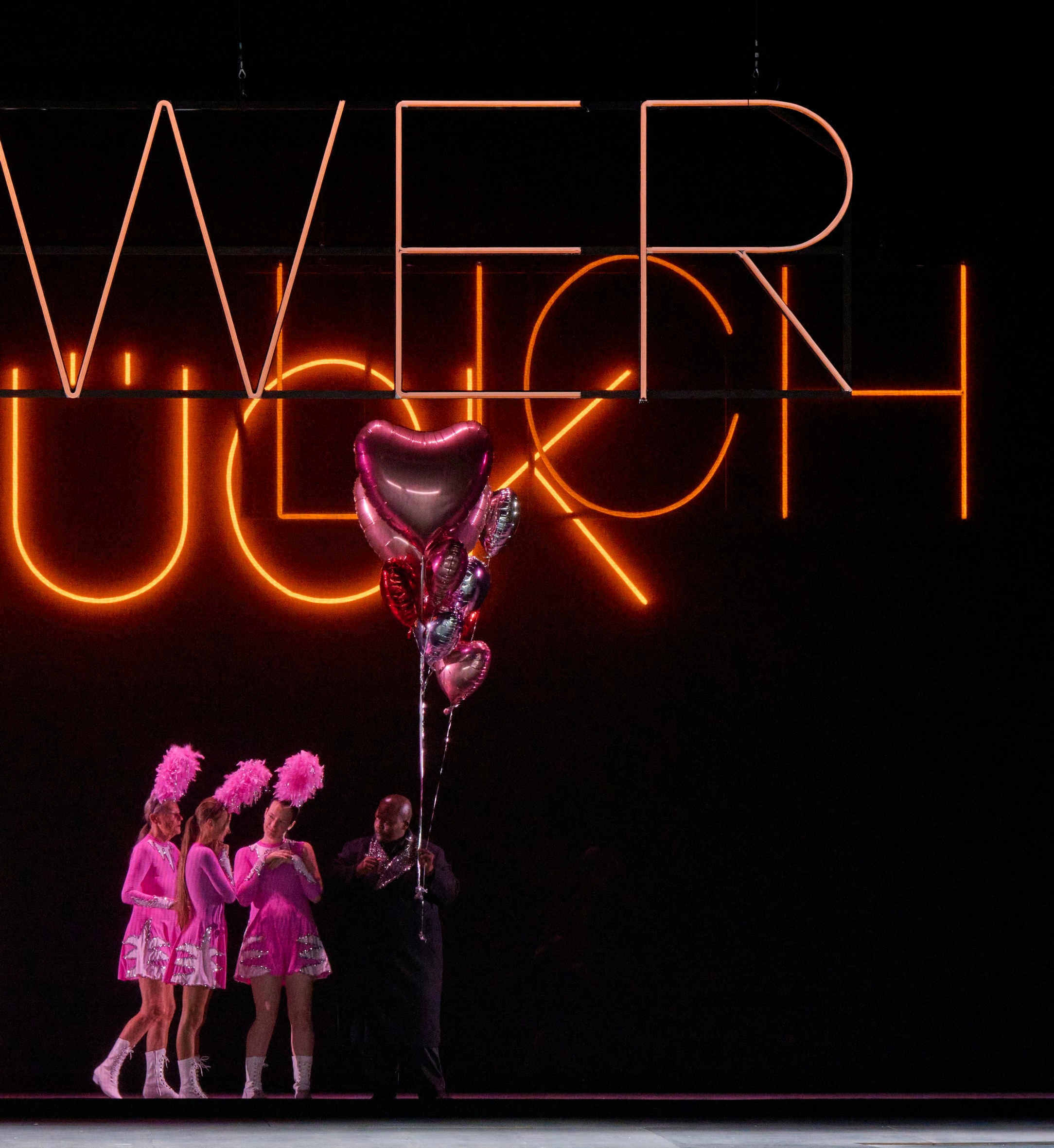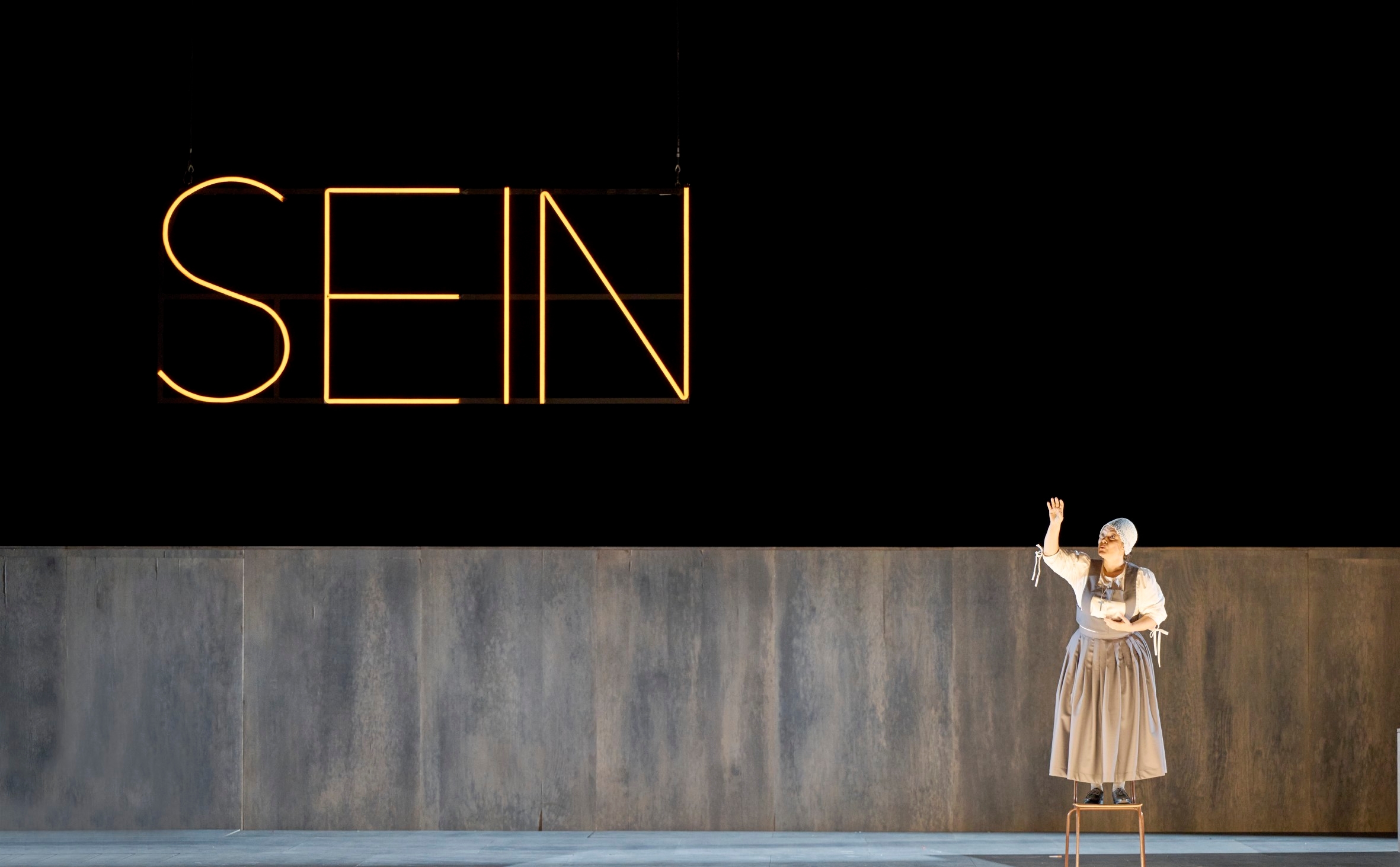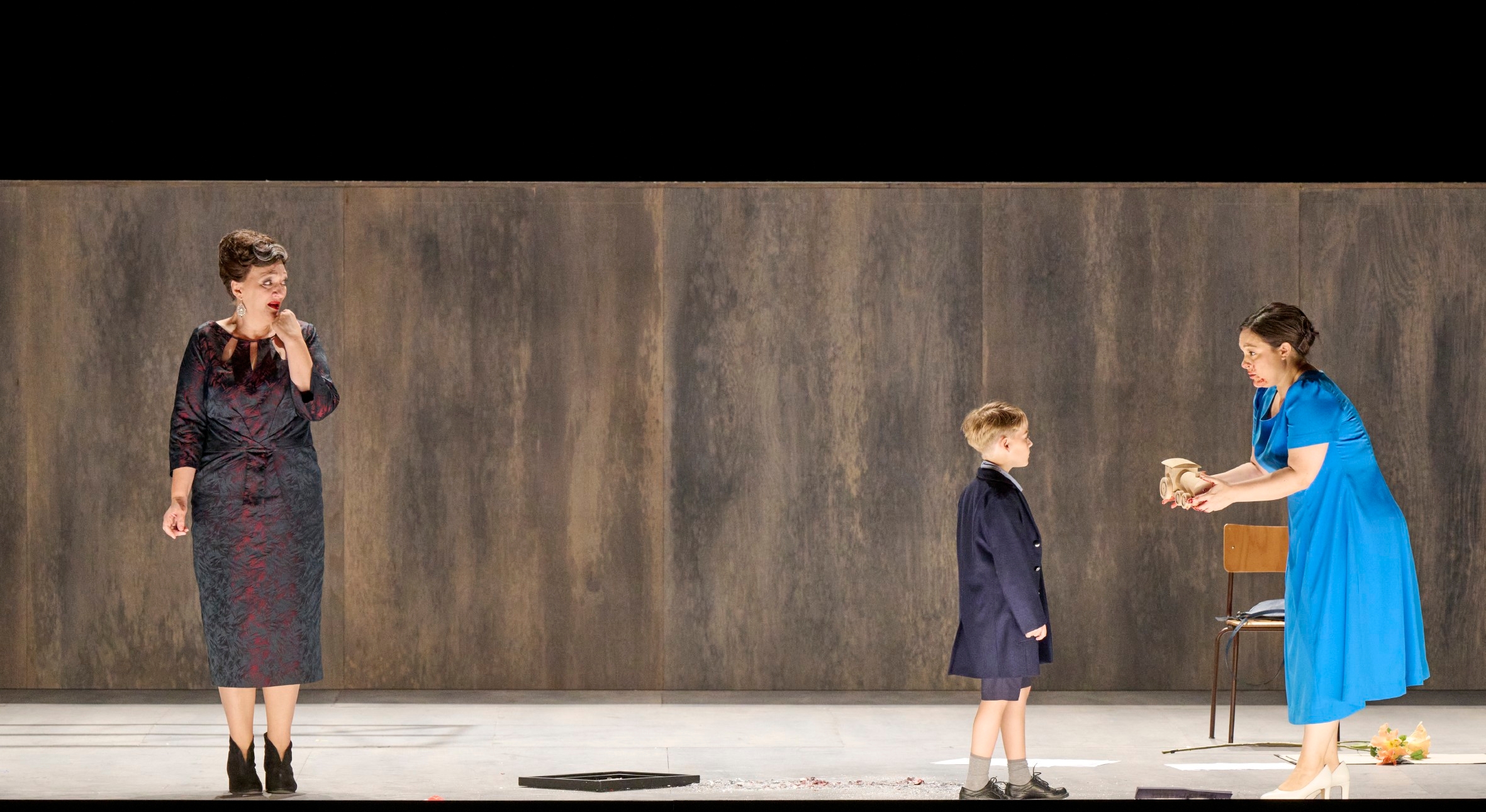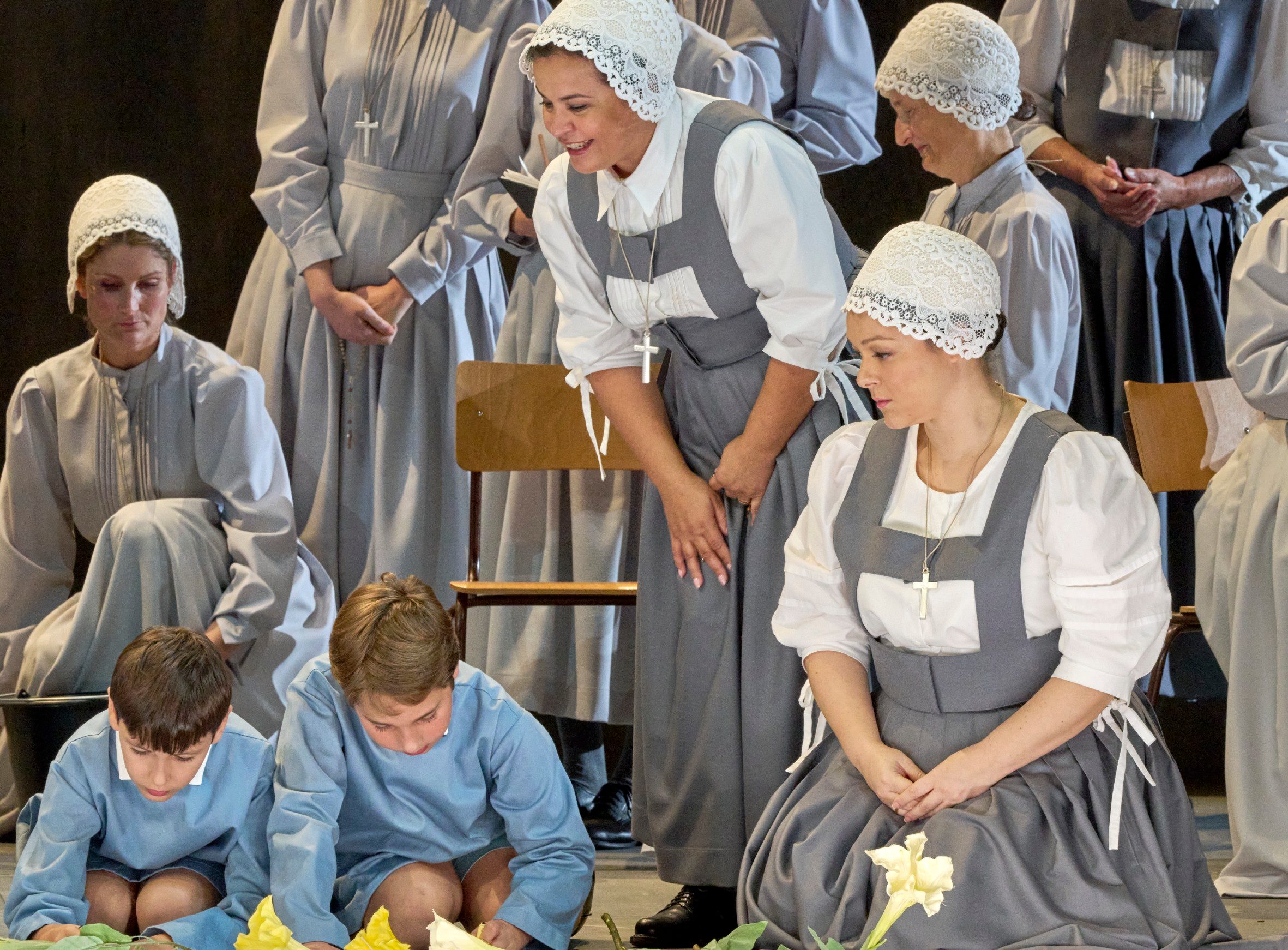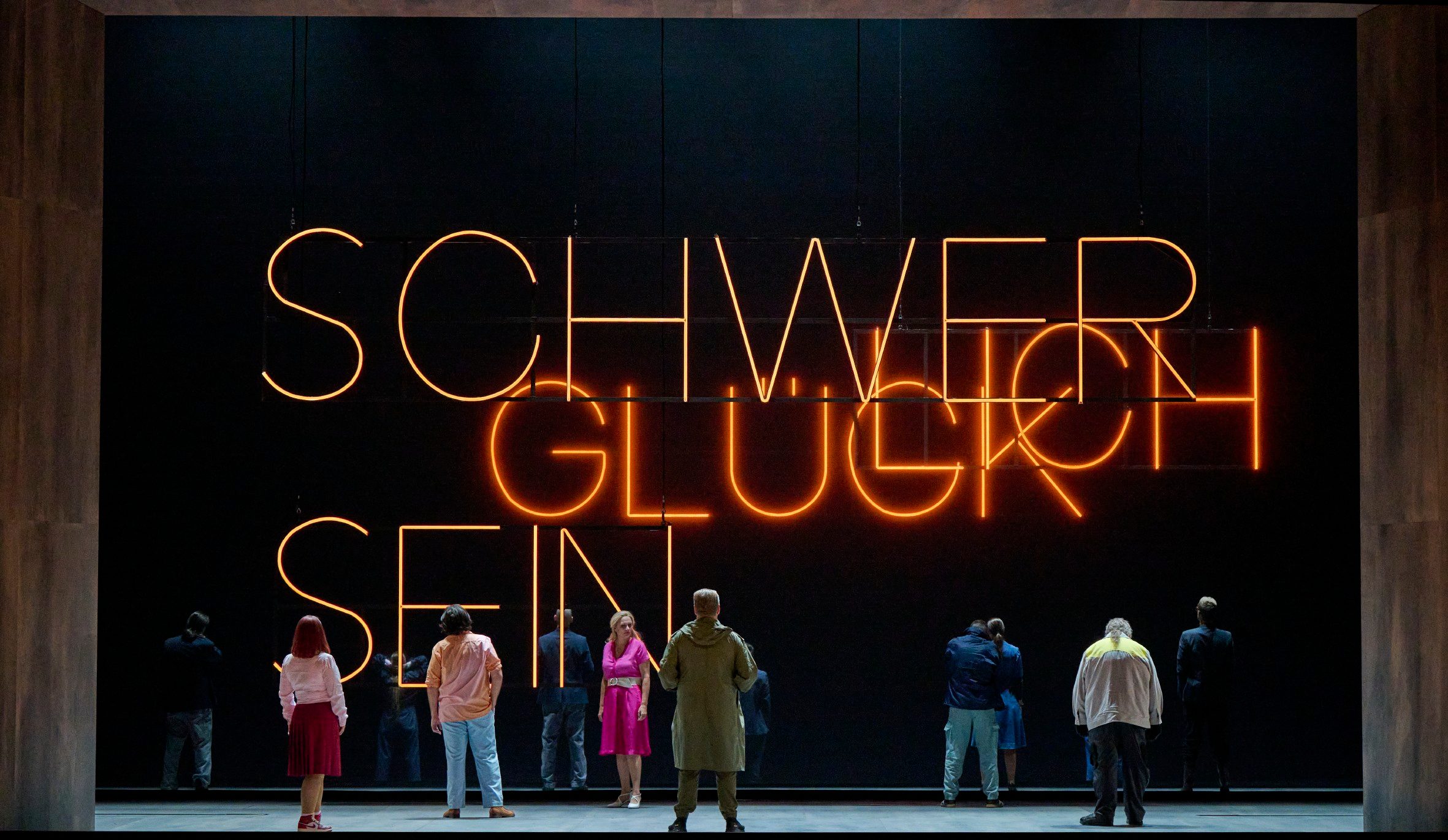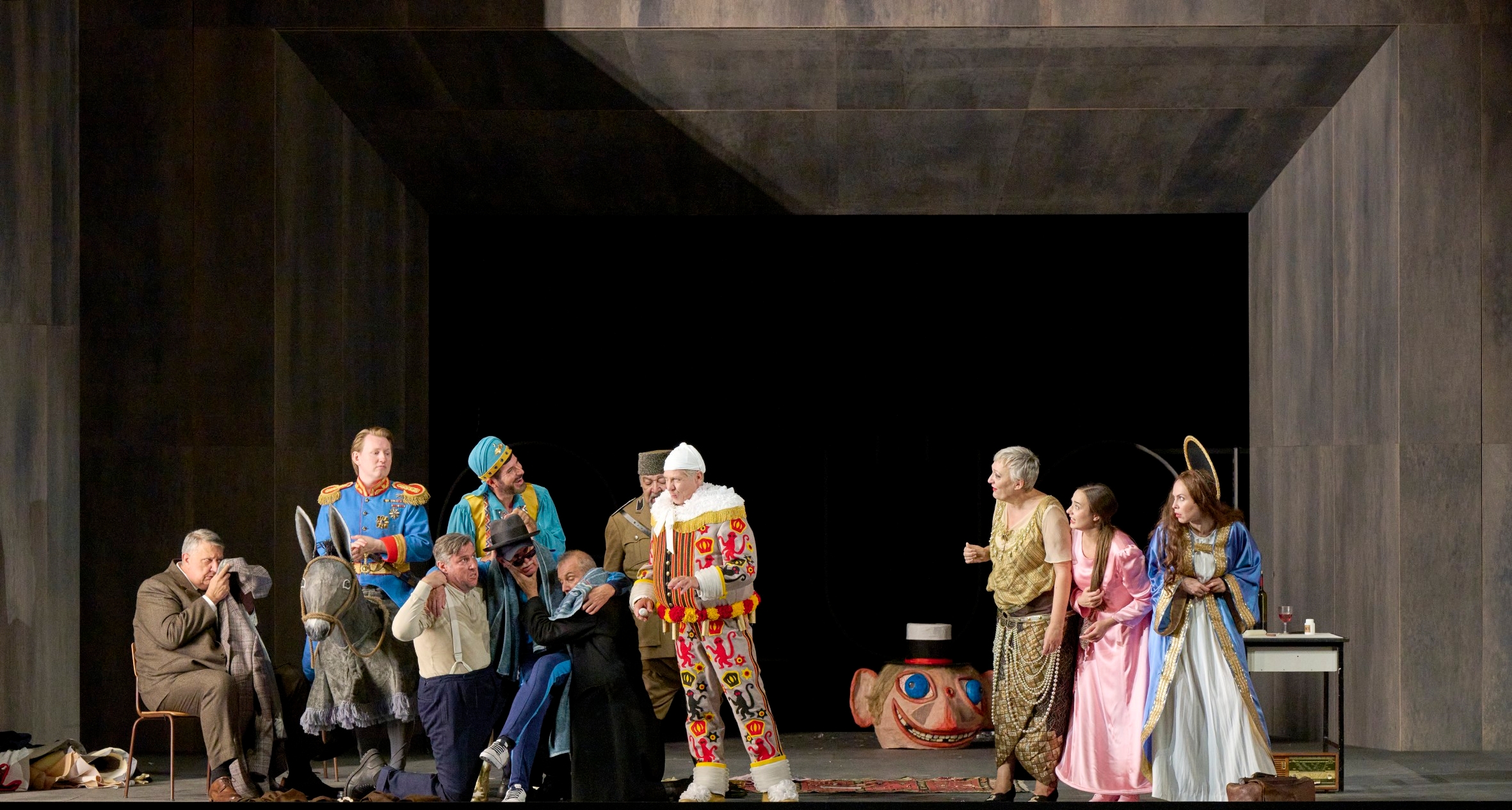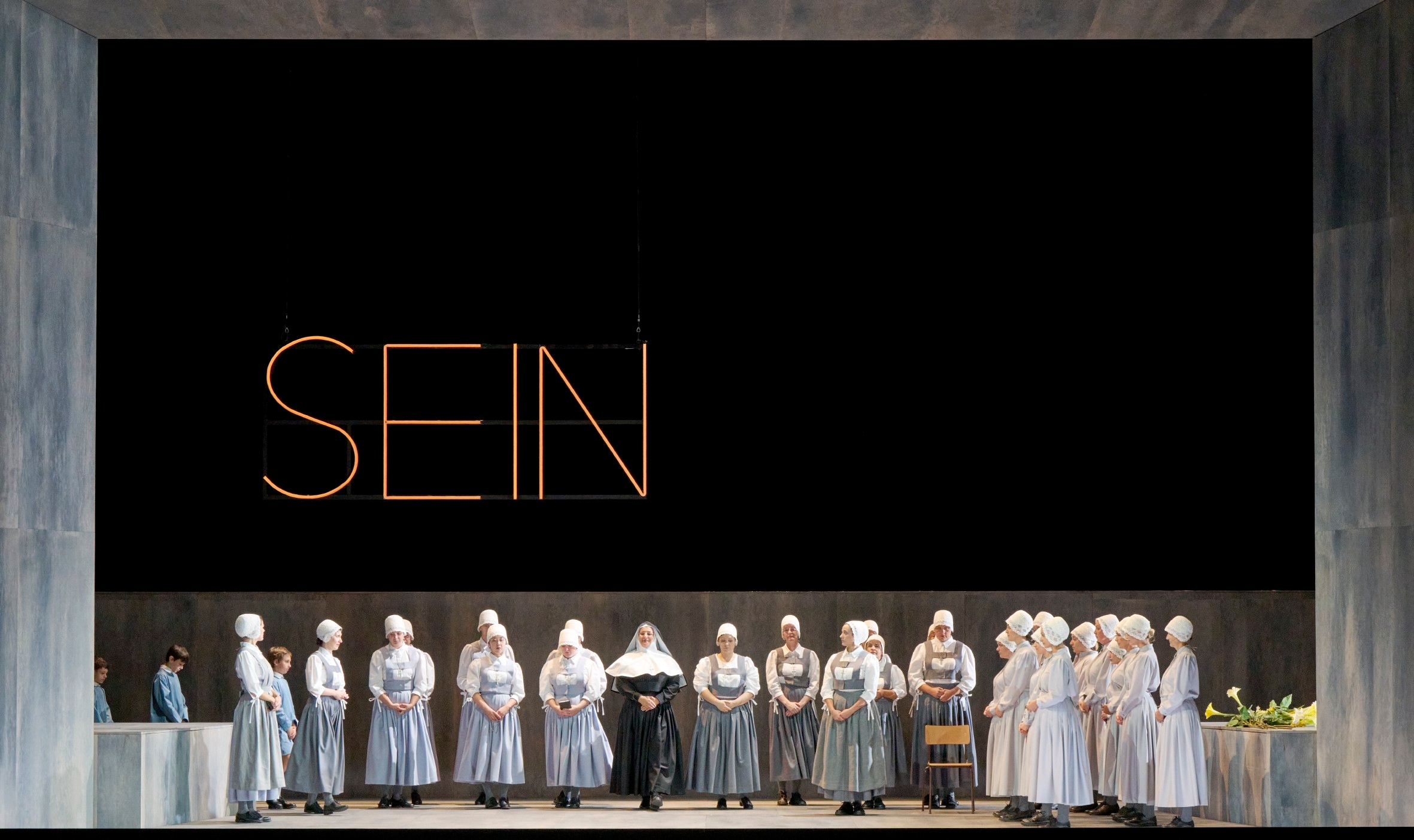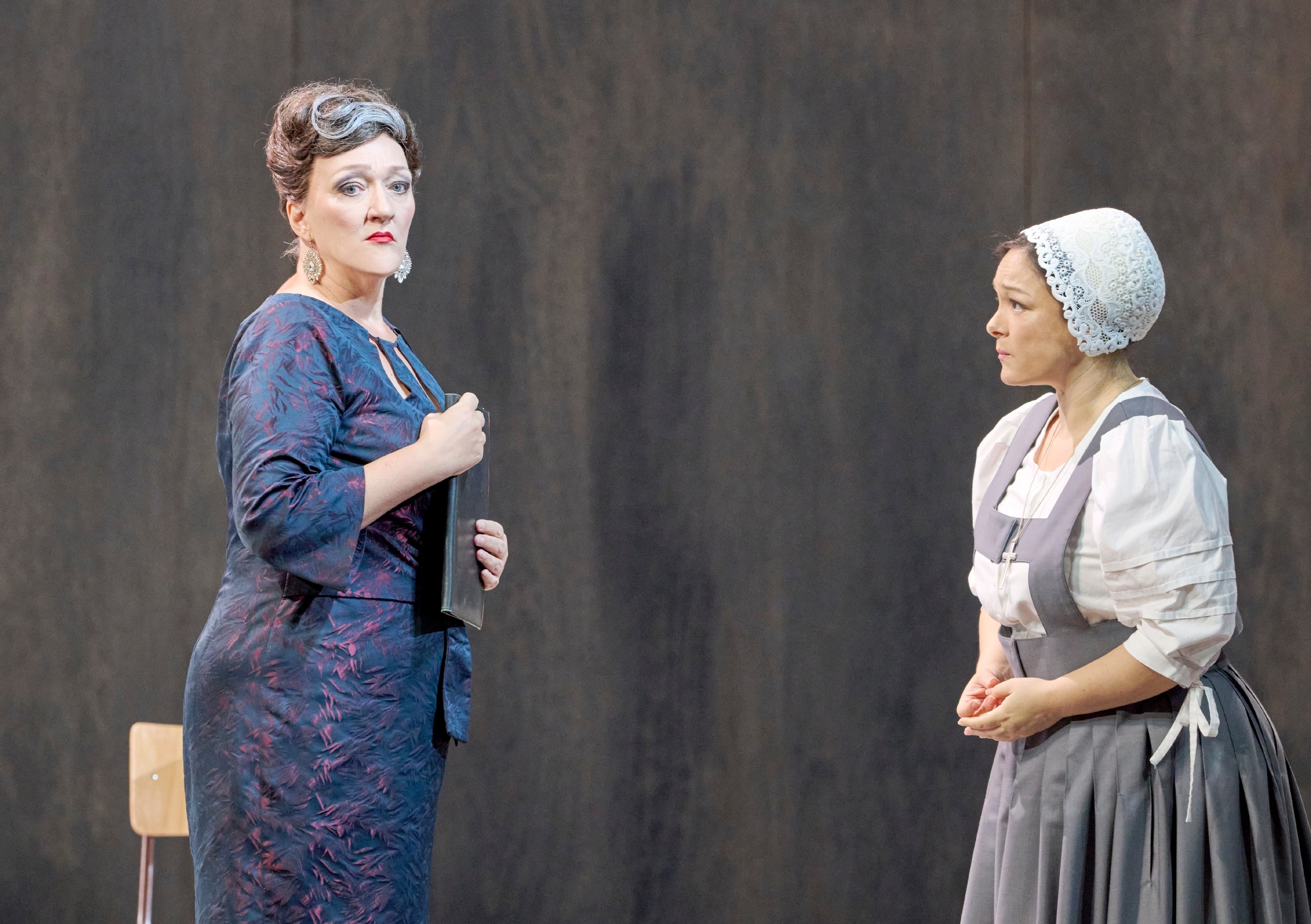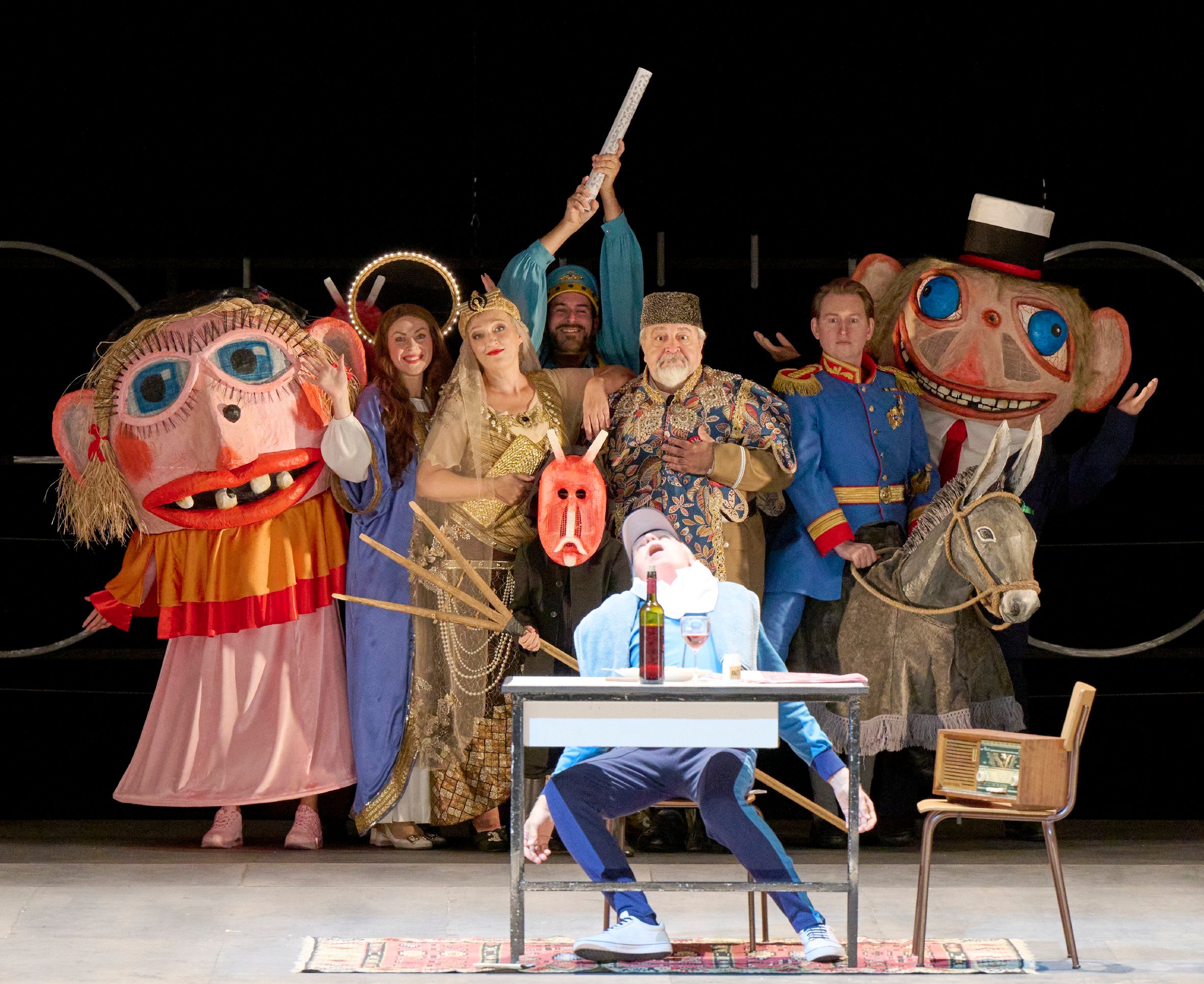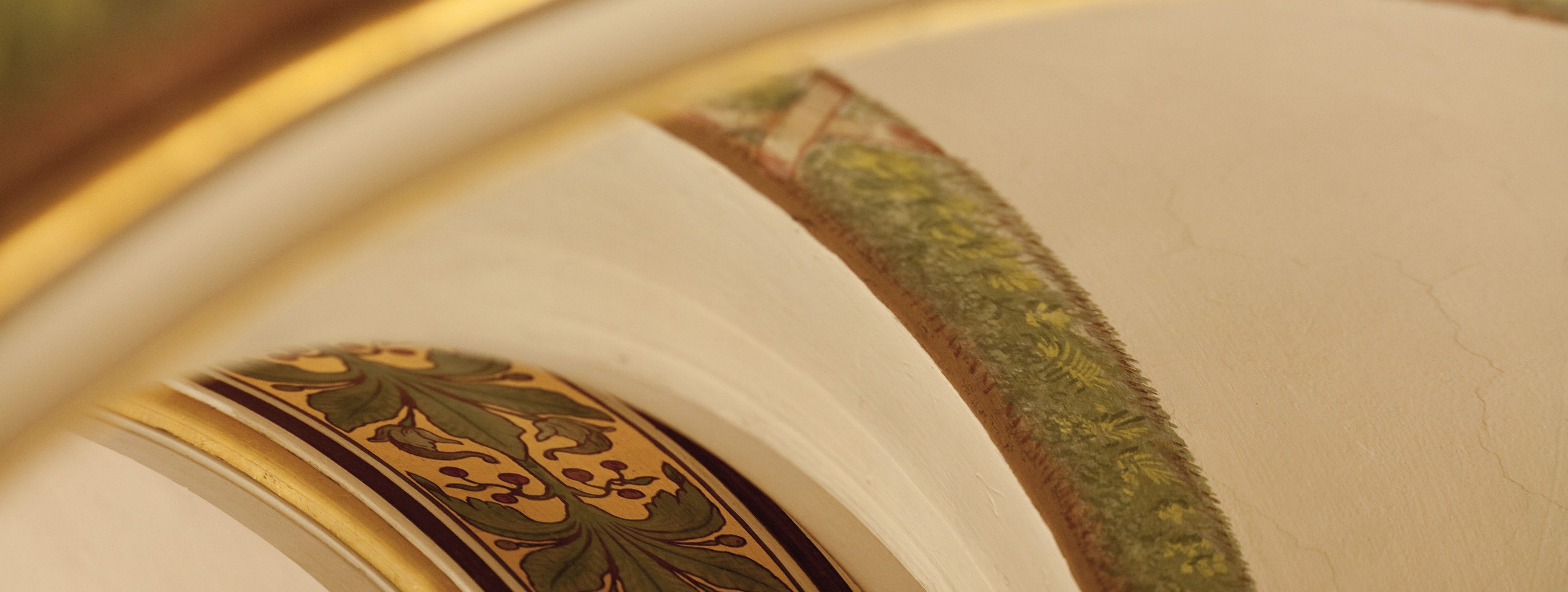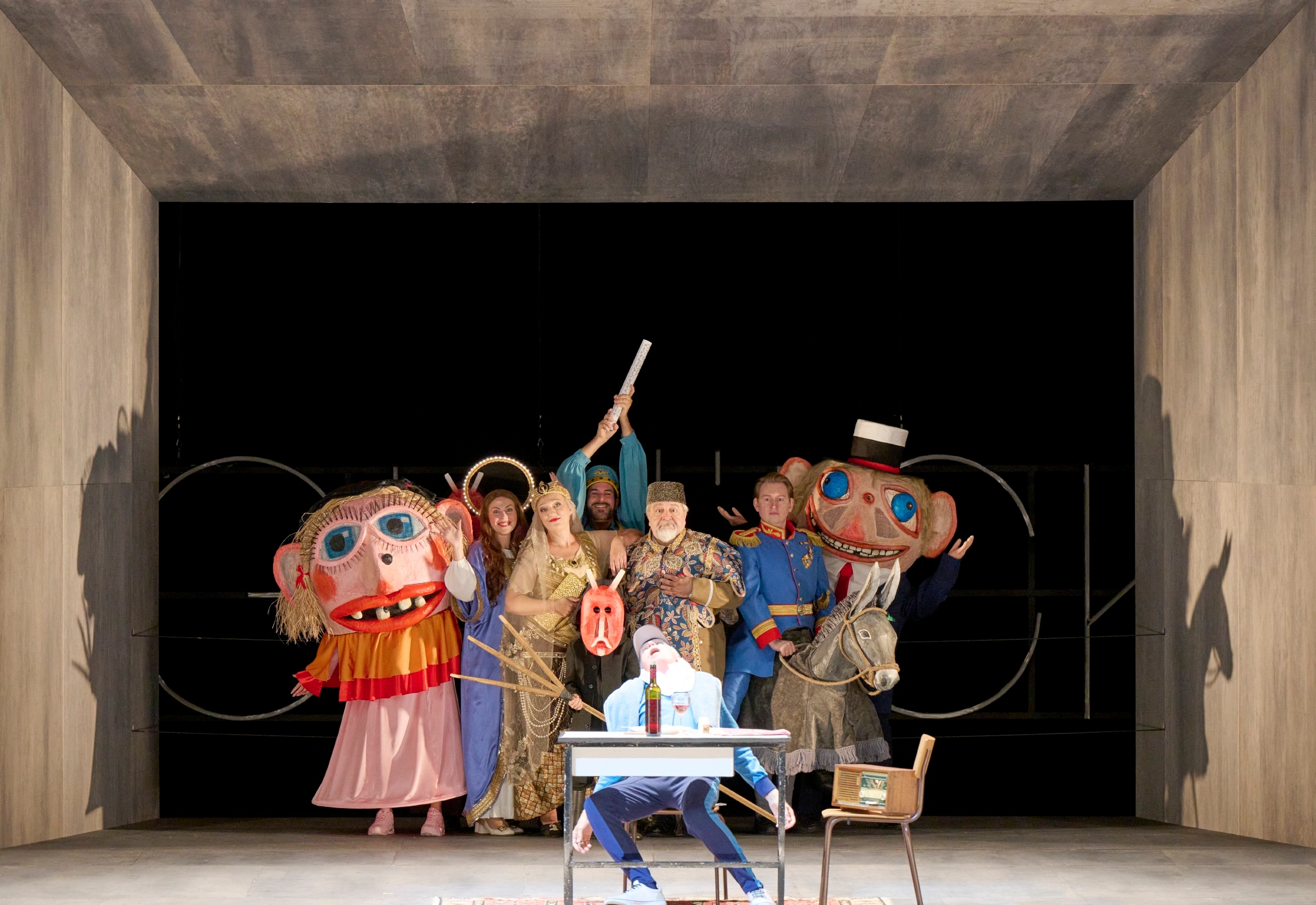
Short Summary
Il tabarro is a gloomy marital drama set in the milieu of Parisian boatmen on the Seine: Grief for their deceased child stands between the couple Michele and Giorgetta, Giorgetta's affair with the worker Luigi ends in tragedy.
Suor Angelica, the "sentimental" story for which Giovacchino Forzano wrote the libretto, tells of the suffering of the eponymous nun, who draws her vitality from the memory of her son - the result of the "misstep" that brought her to this place - until she is robbed of this support.
For the comic third part, Gianni Schicchi, Forzano again adapted a short episode from Dante's Inferno: In order to obtain the inheritance of the rich Florentine Buoso Donati, his relatives instruct Gianni Schicchi to take his place and - as a supposedly dying man - dictate a will in their favor.
Il Trittico
Storyline
Michele's barge is moored in a corner of the Seine in Paris. The workers unload the last of their goods while Michele watches the sunset. Michele's wife Giorgetta offers the workers refreshments. The young worker Luigi beckons an organ grinder. Giorgetta dances first with Tinca, who is happy to drink, and then with Luigi.
The cheerful scene is interrupted by Michele. The relationship between him and his much younger wife is strained. He tells Giorgetta that he wants to keep Luigi employed alongside the older worker Talpa and Tinca, otherwise he will starve to death. Talpa's wife Frugola comes to collect her husband. She dreams of spending the rest of her life in a little house in the country. Giorgetta, on the other hand, raves about the Belleville district of Paris, where she and Luigi come from. When everyone else has left, Giorgetta calls Luigi over. The two have a love affair. They arrange to meet at midnight and Giorgetta lights a match as a signal.
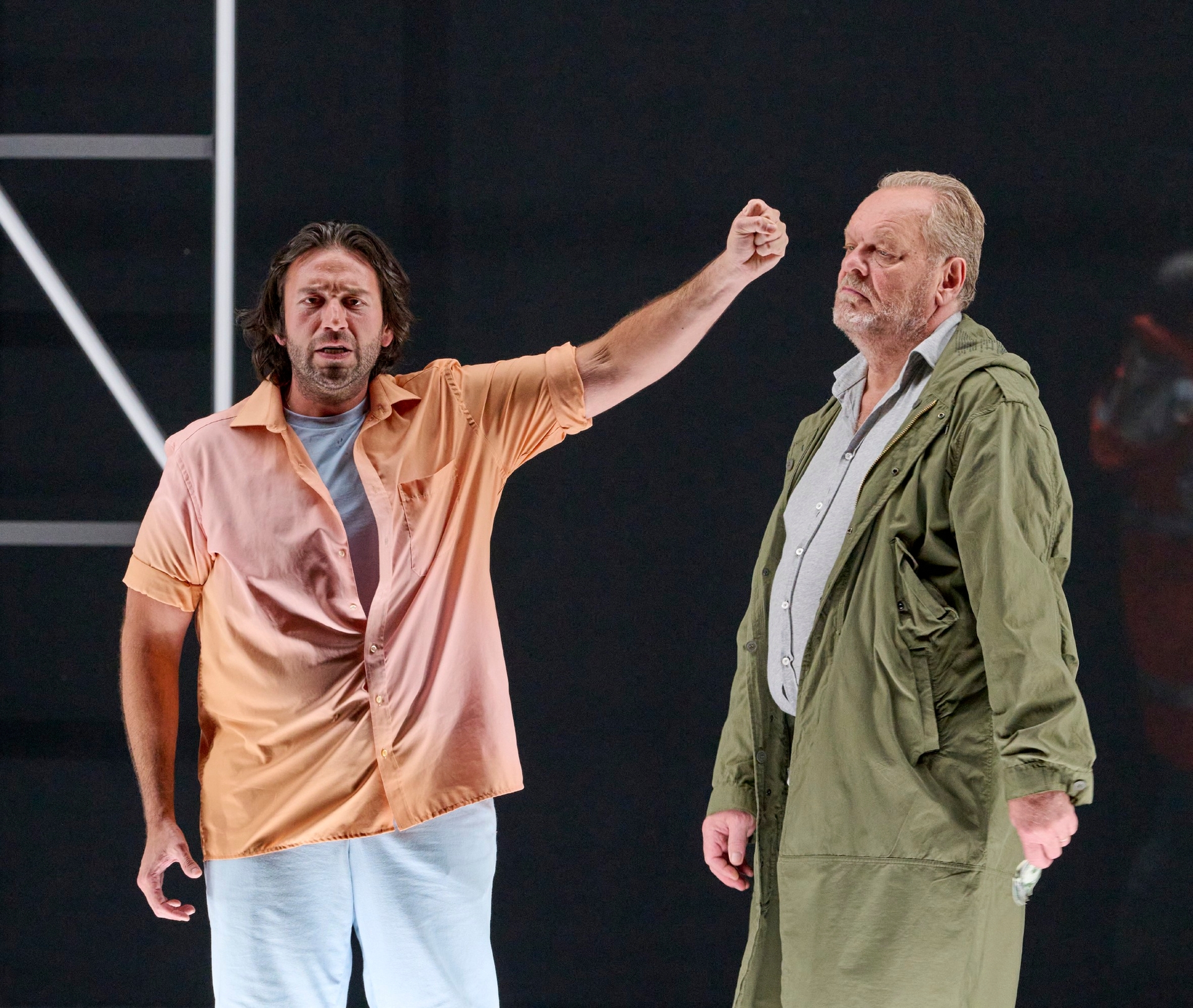
Michele accuses Giorgetta of no longer loving him. He conjures up the time of their happiness, which ended when their child died. The symbol of this happiness is Michele's coat, under which he was able to offer his little family protection. Giorgetta leaves Michele alone with his dark thoughts. He is convinced that she is having an affair and thinks about who her lover might be.

As he lights his pipe, the waiting Luigi takes the match for the agreed sign from Giorgetta and enters the boat. Pressed by Michele, Luigi confesses his love for Giorgetta. Michele stabs him to death. He wraps the body in his coat. Giorgetta comes to apologize to Michele. Michele opens the coat and Luigi's body is revealed.
A courtyard inside a convent. After evening mass, Sister Zealot gives some of the sisters penance exercises, while the others go off to their leisure time. When the conversation turns to a deceased sister, Suor Angelica explains that death is a beautiful life in which there are no more wishes.
The sisters are divided as to whether they are allowed to have worldly desires. Most of them deny having any, including Suor Angelica. However, the sisters know that Angelica is eagerly awaiting news of her family. Rumor has it that Angelica comes from a rich, noble family and was sent to a convent as punishment. One of her sisters was stung by wasps. Suor Angelica, who looks after the convent garden, has soothing remedies at hand.

A visitor is reported: It's Angelica's aunt. She has taken over the guardianship of Angelica and her siblings from their deceased parents. Now she has come to present Angelica with documents on the division of the family estate for her to sign, because Angelica's younger sister is getting married. Her future husband is prepared to overlook the disgrace that Angelica has brought upon the family: Angelica has an illegitimate son. She asks her aunt to tell her about him.
The aunt explains that the child died two years ago. She then forces Angelica to sign and leaves the convent. Angelica laments the fate of her child, who had to die without a mother. The unsuspecting sisters congratulate her on the long-awaited visit. At night, Angelica poisons herself. Dying, she falls into despair over the mortal sin of suicide. Surrounded by heavenly choirs and unexpected apparitions, she dies as if in transfiguration.
Buoso Donati has died. His relatives outdo each other with expressions of grief. The cries are particularly loud when Buoso's will is found: The deceased has left his entire estate to a monastery.
The young Rinuccio suggests asking the clever Gianni Schicchi for advice. Rinuccio's motives are not altruistic: he wants to marry Gianni's daughter Lauretta. Simone and Zita explain that the noble Donatis would never associate with the family of an upstart like Gianni Schicchi.

When Gianni Schicchi arrives with Lauretta, Zita refuses to agree to the wedding because Lauretta is not bringing a dowry. The offended Gianni wants to leave again, but Rinuccio asks him to at least take a look at the will. Lauretta also threatens to commit suicide if the wedding does not go ahead. Gianni Schicchi confirms that nothing can be done about the will. But he has an idea: in the role of the dying Buoso, he will dictate a new will to the notary in favor of the relatives. A fight breaks out over the best shares of the inheritance, the house, the Signa mills and the prestigious mule. One relative after another takes Gianni aside and promises him a reward if he decides in his favor.

The notary records the will. Gianni awards all his relatives a share of the inheritance. However, he bequeaths the house, the mills and the mule to himself - Gianni Schicchi. Gianni reminds the protesting relatives in disguise that, as accomplices, they face severe punishment if the fraud is discovered.

When the notary and witnesses have left, Gianni throws the angry relatives out of the house. Lauretta and Rinuccio are happy: nothing now stands in the way of their wedding. Gianni Schicchi explains to the audience that he has been thrown into hell for this prank. With a respectful reference to the great father Dante, he asks for leniency on account of the good entertainment.
Each of the works has its own fascinating musical originality - the relentlessly advancing river motif in Tabarro, punctuated by Puccini's incomparable realisms, ship sirens, car horns, small incidental scenes; the deceptive calm of the monastic conversation in SuorAngelica, which is led to the dramatic climax with tremendous musical-dramaturgical precision (which finds its reflection in "Senza Mamma", one of the most famous and touching arias in the history of opera); the multifaceted musical wit in Gianni Schicchi, which ranges from playful cheerfulness to amusing chaos.
